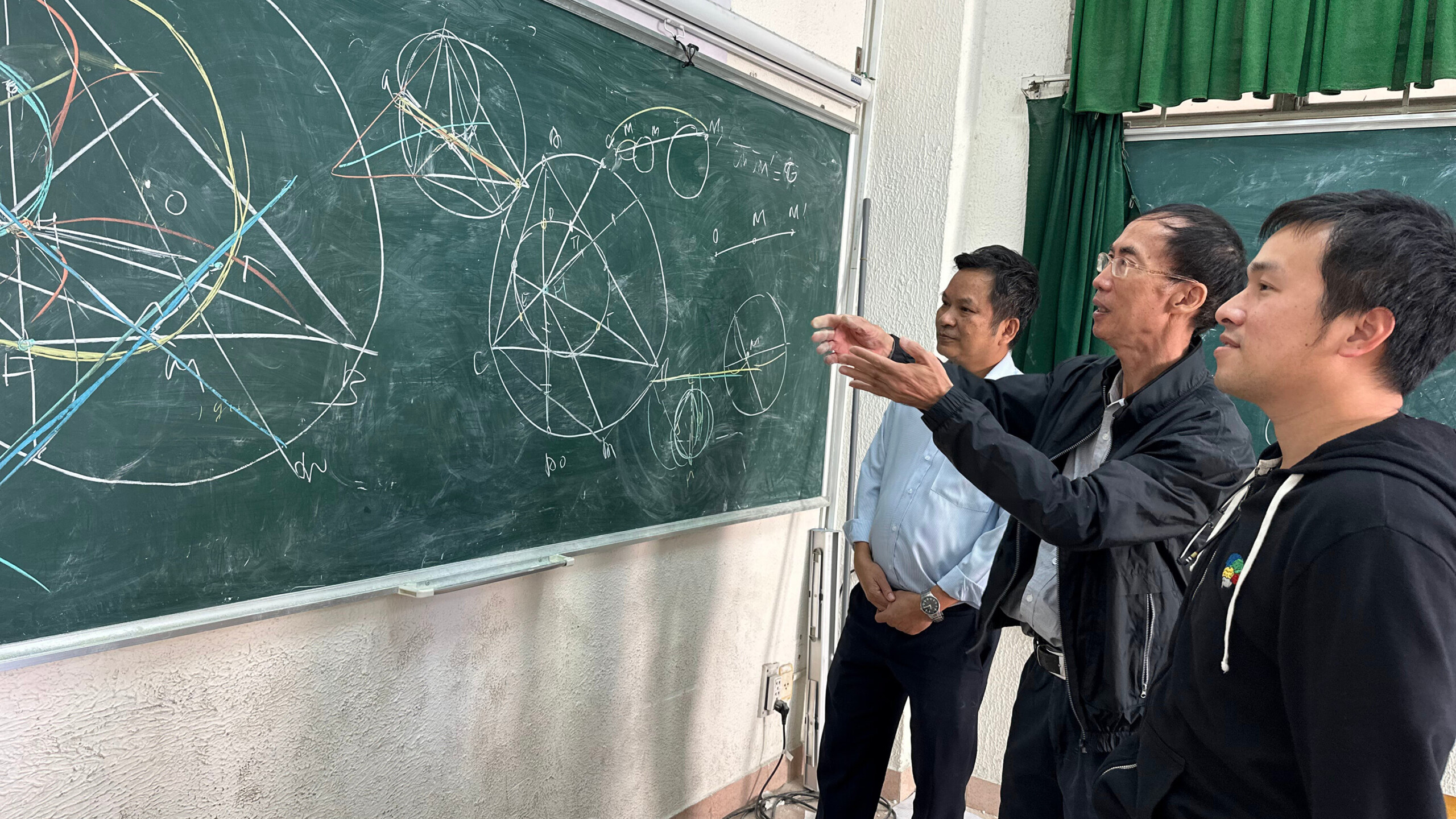For four years, Trieu Trinh, a computer scientist, has been engrossed in a meta-math problem: developing an artificial intelligence (A.I.) model capable of solving geometry problems from the International Mathematical Olympiad. This prestigious competition is designed for the world’s most mathematically gifted high-school students.
Recently, Dr. Trinh successfully defended his doctoral dissertation at New York University on this subject. Subsequently, he published the outcomes of his research in the journal Nature. The system he created, named AlphaGeometry, demonstrates the ability to solve Olympiad geometry problems almost as proficiently as a human gold medalist.
During the project’s development, Dr. Trinh presented his idea to two Google research scientists, who then invited him to join Google as a resident from 2021 to 2023. AlphaGeometry now stands alongside Google DeepMind’s array of A.I. systems renowned for addressing significant challenges. Notably, AlphaZero, a deep-learning algorithm, made headlines in 2017 for mastering chess. Unlike chess, where the solutions are finite, mathematics poses a more complex problem due to the potentially infinite paths to a solution.
Dr. Trinh, the primary author and driving force behind the project, acknowledged facing numerous obstacles and wrong turns during the development process. However, his perseverance paid off, leading to a substantial breakthrough rather than just incremental progress.
The co-authors of the paper include Dr. Trinh’s doctoral adviser, He He, from New York University; Yuhuai Wu, also known as Tony, a co-founder of xAI (previously at Google); and Thang Luong and Quoc Le from Google DeepMind.
AlphaGeometry’s capabilities were put to the test with a set of 30 Olympiad geometry problems spanning from 2000 to 2022. The system successfully solved 25 of these problems, comparable to the average performance of a human gold medalist over the same period. In contrast, a system developed in the 1970s, known for its prowess in geometry theorem proving, only solved 10 of the problems.
In recent years, Google DeepMind has delved into various projects exploring the application of A.I. in mathematics. Olympiad math problems have emerged as a standard benchmark in this research domain, with notable contributions from OpenAI and Meta AI. The introduction of challenges like the I.M.O. Grand Challenge and the Artificial Intelligence Mathematical Olympiad Prize further motivate advancements in this field.
AlphaGeometry’s unique approach combines a neural net language model with a symbolic engine, tailored specifically for geometry problem-solving. The system’s neural net was trained solely on algorithmically generated data, surpassing the limitations of human-proof training data. Additionally, the system employs an augmentation process termed “auxiliary construction,” where the neural net suggests enhancements to the proof argument, resembling human problem-solving strategies.
While the system’s performance has garnered praise for its strong results, experts like Terence Tao emphasize the value of the journey in fine-tuning A.I. systems rather than just the end result. Dr. Trinh aims to expand AlphaGeometry’s applicability across various mathematical domains, emphasizing the importance of building trustworthy and truth-seeking A.I. for critical applications.
AlphaGeometry’s innovative approach and impressive performance have attracted attention from mathematicians and researchers, highlighting the potential for automated reasoning in complex problem-solving tasks.






